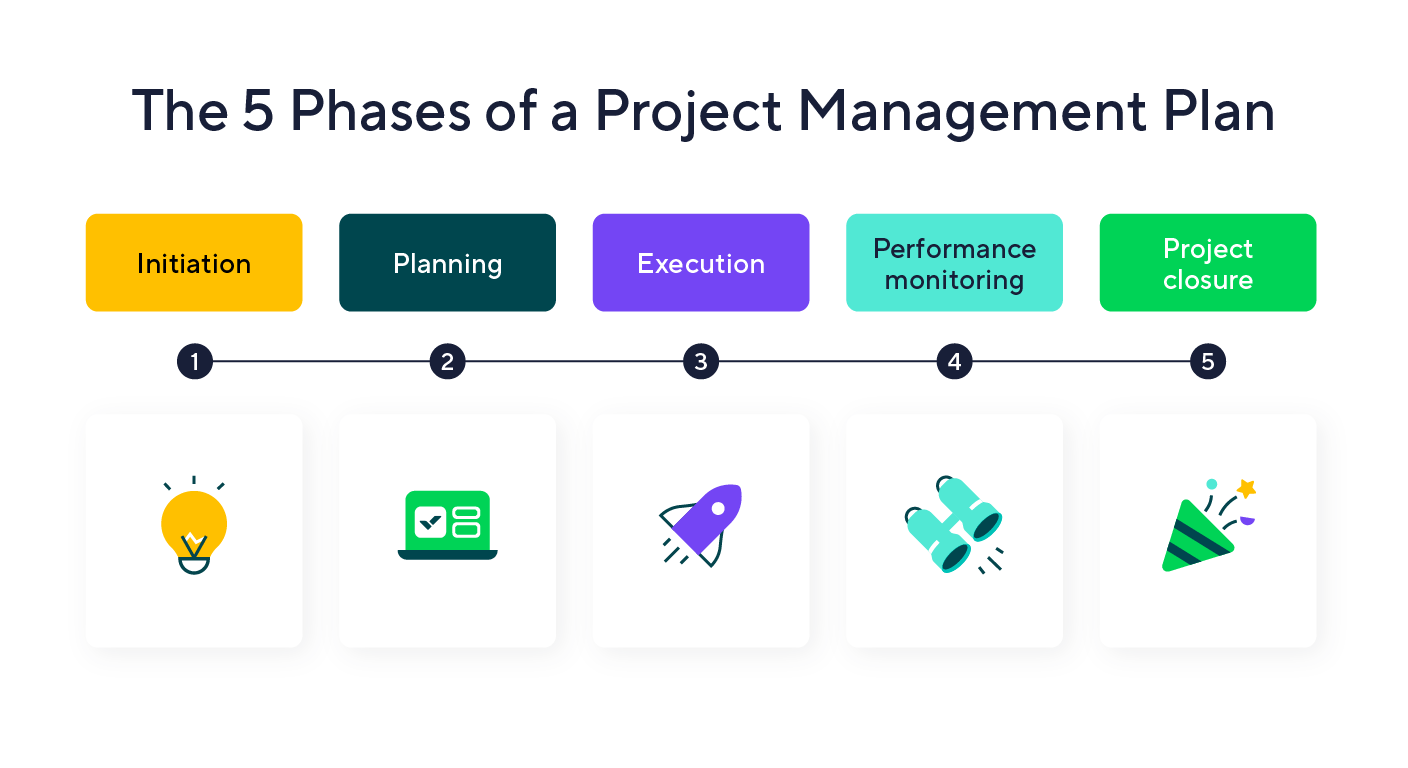Project Management from Mentina Slevska's blog
Effective project management is a crucial element in any business aiming for success. It ensures that all team members are aligned, resources are used efficiently, and deadlines are met. This article will explore the core principles of project management, its importance, and how you can implement it to ensure the success of your projects https://forbytes.com/services/project-management/.

Project management is the process of leading a team to achieve specific goals within a specified time frame. It involves planning, organizing, executing, and controlling various aspects of a project, such as scope, budget, and resources. Whether you’re launching a new product or improving internal processes, project management ensures everything runs smoothly.
A project manager oversees the process, ensuring that objectives are met while maintaining quality standards. This professional also acts as a liaison between team members and stakeholders, ensuring that communication is clear and consistent.
The Importance of Project Management1. Ensures Goal AlignmentOne of the most important roles of project management is to make sure that everyone involved in a project is working toward the same goal. Without a clear strategy, it’s easy for teams to get sidetracked or focus on tasks that don’t contribute to the project’s overall objectives. Project management helps keep teams on the same page, ensuring that all actions contribute to the end goal.
2. Effective Resource AllocationResource management is a critical aspect of project success. Whether it's time, money, or manpower, ensuring that resources are allocated effectively is key. Project management tools and strategies allow teams to better understand how their resources are being used, preventing waste and improving efficiency.
3. Manages RisksEvery project comes with its share of risks, from delays to budget overruns. A good project management process identifies potential risks early on and develops strategies to mitigate them. This proactive approach minimizes the impact of any issues that may arise, ensuring that the project stays on track.
4. Improves CommunicationEffective communication is vital in any team project. Project management ensures that there is a clear line of communication among team members, stakeholders, and clients. Regular updates and meetings help everyone stay informed, reducing the likelihood of misunderstandings or delays.
5. Enhances Quality ControlWith a structured approach, project management helps ensure that all project deliverables meet quality standards. The project manager reviews work throughout the project lifecycle, ensuring that every task is completed to the required standard. This reduces the chances of errors or rework, saving time and resources.

Different projects require different management approaches. Below are some of the most popular methodologies in project management.
1. AgileAgile project management is a flexible approach that focuses on continuous improvement. It’s ideal for projects that require constant adjustments, such as software development. Agile is iterative, allowing teams to deliver small portions of the project, gather feedback, and make improvements before moving on to the next phase.
2. WaterfallWaterfall is a more traditional methodology where a project is broken down into sequential phases. Each phase must be completed before the next one begins. This approach works best for projects with clearly defined requirements and a fixed timeline, such as construction projects.
3. ScrumScrum is a subset of Agile that focuses on short "sprints," or work periods, to complete specific tasks. It is a highly collaborative approach, involving regular feedback loops and adjustments to improve efficiency. Scrum is widely used in the tech industry but can be adapted to other types of projects.
4. KanbanKanban is another Agile methodology that uses a visual board to track progress. Tasks are organized in columns based on their current stage, allowing the team to see at a glance where the project stands. This method is particularly useful for teams that have to manage a continuous workflow.
Best Practices for Effective Project Management1. Set Clear ObjectivesThe first step in any successful project is to set clear, measurable objectives. Every team member should understand the project’s goals and how their role contributes to achieving them. Use SMART (Specific, Measurable, Achievable, Relevant, Time-bound) goals to guide your project planning.
2. Develop a Detailed PlanA well-structured project plan is essential for staying on track. Outline every task, assign responsibilities, and set deadlines for each phase. Having a detailed roadmap will help you manage the project effectively and make it easier to identify any potential issues before they escalate.
3. Monitor Progress RegularlyRegular monitoring is essential to keep the project on track. Use tools to track key performance indicators (KPIs), such as progress against deadlines, budget status, and resource utilization. Holding regular check-ins with the team also ensures that everyone stays aligned with the project’s goals.
4. Be AdaptableFlexibility is key in project management. While it’s important to stick to the plan, being adaptable when unexpected challenges arise can make the difference between success and failure. Incorporate regular feedback loops and be open to adjusting the project plan as needed.
5. Focus on Team CollaborationSuccessful projects rely on effective teamwork. Encourage collaboration and open communication among team members. This not only improves morale but also enhances creativity and problem-solving.
ConclusionProject management is the backbone of any successful business initiative. By aligning goals, managing resources, and staying on top of risks, you can ensure that your projects are delivered on time, within budget, and to the highest quality standards. Whether you use Agile, Waterfall, or another methodology, the key to success is clear planning, continuous monitoring, and effective communication.

The Wall